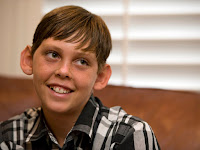- The first phase involves emptying the colon of hard, retained stool. Different doctors might have different ways of helping children with encopresis. Depending on the youngster's age and other factors, the doctor may recommend medicines, including a stool softener (such as mineral oil), laxatives, and/or enemas. As unpleasant as this first step sounds, it's necessary to clean out the bowels to successfully treat the constipation and end your youngster's soiling.
- After the large intestine has been emptied, the doctor will help the youngster begin having regular bowel movements with the aid of stool-softening agents, most of which aren't habit-forming. At this point, it's important to continue using the stool softener to give the bowels a chance to shrink back to normal size (the muscles of the intestines have been stretched out, so they need time to be toned without the stool piling up again).
- As regular bowel movements become established, your doctor will reduce the youngster's use of stool softeners.
- Add bran to baking items such as cookies and muffins, or to meatloaf or burgers, or sprinkled on cereal. (The trick is not to add too much bran or the food will taste like sawdust.)
- Add lentils to soup.
- Add shredded carrots or pureed zucchini to spaghetti sauce or macaroni and cheese.
- Bake cookies or muffins using whole-wheat flour instead of regular flour. Add raisins, chopped or pureed apples, or prunes to the mix.
- Create tasty treats with peanut butter and whole-wheat crackers.
- Make bean burritos with whole-grain soft-taco shells.
- Make pancakes with whole-grain pancake mix and top with peaches, apricots, or grapes.
- Serve apples topped with peanut butter.
- Serve bran waffles topped with fruit.
- Sneak some raisins or pureed prunes or zucchini into whole-wheat pancakes.
- Top high-fiber cereal with fruit.
- Top ice cream, frozen yogurt, or regular yogurt with high-fiber cereal for some added crunch.
==> Parenting System that Reduces Defiant Behavior in Teens with Autism Spectrum Disorder
==> Launching Adult Children with Autism Spectrum Disorder: Guide for Parents Who Want to Promote Self-Reliance
==> Teaching Social-Skills and Emotion-Management to Children with Autism Spectrum Disorder
==> Parenting Children and Teens with High-Functioning Autism: Parents' Comprehensive Handbook
==> Unraveling the Mystery Behind High-Functioning Autism: Audio Book
____________________
• Anonymous said… Aspergers kids often have issued recognizing when they need to go. The nervous system effectively shuts down due to over stimulation so they don't feel it. Get him on a schedule. 30-45 minutes after eating every time. If he's constipated, put him on myralax to get him regulated. Above all, talk to him. Explain to him why he may not recognize what's happening and how you would like to help him get control over it. Make sure you stress that you want to help "him" have control. Discuss it in detail with him. Aspergers kids love detail and logic and rules.
• Anonymous said… Buy the squatty pottty, they sell them at bed bath and beyond, it is a special stool that you put your feet up on and it helps positioning too. Also kids with asd often have constipation and this may also be a reason they don't use the toilet, they associate it with pain.
• Anonymous said… Growing up my younger brother did this also. We discovered he had epilepsy. He would have mild seizures we didn't even notice. They were so mild. The Doctor figured that when he had a seizure was when my brother would soil his pants. He was around 16 when he stopped.
• Anonymous said… Have him tested for coeliac and gut problems, my son had trouble toilet training because he couldn't tell the difference between gas and solids due to wheat and dairy intolerances, which is apparently quite common on the spectrum.
• Anonymous said… he may not be able to feel it happening because of sensory issues, maybe a regular toilet time about 4 times a day to help him to try to make his movements regular? do you have a very bright or very dark toilet/bathroom? this might be an issue. Another not quite as wonderful solution might be to get him incontinence pants
• Anonymous said… I am grateful for the question/answer, thanks to the OP for putting it out there. My 7 yr old has only been PT for about 2 years, and while we rarely leave him with a sitter, it seems that he commonly will soil his pants in the care of others. Other than this issue, he is VERY well behaved for other caregivers, but once he does this, they are not eager for him to return. We have tried showing him where the potty is, and making sure he knows it's ok to ask to use the potty and all of that stuff. Separately, the comments on the article about kids even as old as teenagers have this problem are kind of breaking my heart for them, and for our future as well.
• Anonymous said… If this is it (very common with kids on the spectrum) please take him to see a gastroenterologist (preferably one who is familiar with spectrum issues)
• Anonymous said… I'm so glad someone asked this I've been having nothing but obstacles with my son and training. I've got him finally in underwear through out the day and using the potty, he stands over it straddling but hey he's doing it. However he refuses to sit and go number 2. When he has to go he runs and gets a pull up. I've tried praise, tokens and even not buying pull ups but it didn't work. He's 7, non verbal and yes stubborn. Any advice??
• Anonymous said… I'm so glad someone finally asked this. I have been largely ignored when I asked for help in other groups.
• Anonymous said… Its soo good to hear Im not alone. My son is 9, and I really felt like I was the only person dealing with this. It makes me sad that it could last a long time. Ive tried everything the doctors/counsellars suggested. The more I push him to correct it the more he pushes back. Hes gotten to a point where he cleans himself up, and I feel like thats all I can ask for at this point..
• Anonymous said… keep schedule of time it's happening. Help him to recognize some signs (gassy, tummy pain, timing of when to sit). The thing is, if he sits on the toilet at said times, his muscles actually help him go so a routine may work. A possible different position on the potty / one leg up or stretched out for stability and muscle help. Sensory is definitely part of the problem if he can sit in it, I would think. An OT or ABA Autism specialist may be able to help. I would make a few calls and get some suggestions. When he has a good day, don't just praise, bring out the big guns, new video game (but take it back after 30 minutes and say he gets it again when he does a good day). His favorite cake, etc. Also explain the sanitary part of good hygiene and maybe have him watch a few videos (they process this faster and better usually, because of the visuals). Some kids grab onto the "we don't like germs" part and understanding it's toxic and needs to go away. This may/may not motivate them but it's worth a try. He needs a good motivator. See if there is something that breaks it down into small steps. 1. I feel pain 2. I get gas 3. I need to go to the bathroom all the way to lastly I wash my hands for 2 minutes with soap. Breaking things down (you can type it up) helps them and the visual of it broken down into small steps. At the end write something like "I am proud of myself that I can smell fresh and clean and minimize germs by going to the bathroom myself. I am growing up and helping at beating diseases and germs." Something like that. Good luck.
• Anonymous said… Maybe a different position over the toilet? They tend to do different body positions. Good luck!
• Anonymous said… My 14 year old son is the same way. He says it hurts to go when he sits on the toilet but not when he stands and crosses his legs. We've tried everything. We're on a waiting list for ABA therapy and this will be the first item they tackle.
• Anonymous said… My child has demand avoidance- so any structured plans always made him more anxious and failed. We had to stop worrying about it and make him clean up when we noticed it. (It was really a problem for a while). Then it just stopped.
• Anonymous said… my daughter also has epilepsy and while she doesn't soil her pants, she does pee in the bed every night, she is going to be 9 and still has to wear a pull up to bed. When i ask her why she doesn't get up to use the bathroom she says she doesn't feel it when it is happening. This could be the case with your grandson, if he is having a seizure he may have no memory of it. Best of luck. I still have no solution for my daughters nighttime accidents, she doesn't have accidents in the day any longer, but sometimes she waits so long to pee, i tell her to go she says she doesn't have to, then a few minutes later she is racing to the bathroom. Best of luck to you, its never easy but we love them.
• Anonymous said… my son does this and u know what I make no big deal it is a sensory issue and u can't treat him any different because of it. I help him clean up u know why because it's embarrassing for him and he really has no idea till I show him that it happe s
• Anonymous said… Not sure if this is relevant due to the age difference but I had that same problem with my 4 year old. We started giving him a fiber gummy every day. If he has the gummy he goes in the potty. If he doesn't have the gummy he will have an accident. Only thing I can come up with is he must not know and the extra fiber causes more force.
• Anonymous said… Some children have gut problems and get leakage around a hard stool which soils their pants but they can be unaware of it. a regular gentle laxative can help, it can also be used as part of a soiling programme even if there is no constipation.
• Anonymous said… To begin with, it does no good to ask him why he does it. He doesn't know, he's communicated that to you. Would you ask a baby why he soiled his diaper? No. They do it because they don't know any better. Neither does he. My initial thought is that he is regressing due to the emotional trauma in his life. It doesn't matter how he can willingly sit in it all day. It's possible that it's a sensory issue and he likes how it feels. The point is, it doesn't matter. Regarding the shutdown when his grandfather approaches him about it. My thoughts are that he is embarrassed & he doesn't know how to communicate it. He might not even know what it is that he's feeling. He just knows it's an uncomfortable feeling and he tries to hide it. Next, you ask him if he soiled his pants. I'm thinking that he's probably associated something negative (ie, being yelled at, scolded, spanked, etc.) with soiling his pants, which is why he deflects. If I were in your shoes, & I suspected (or knew) he'd done it, I'd tell him to come with you to the bathroom, say, "Lets look in your pants, is there poop? Yup. There's poop. Ok, what do we need to do?" And then guide him through the steps of changing, showering, etc. Don't ask. Make statements, instruct him, guide him. It does no good to ask at this point. To eliminate this behavior, I'd start with a token system. Start with very short periods of time. For every 5 minutes he's clean, give him a token. When he earns 3, he gets a reward. Let him choose what he's working for. When he can go longer than 5 minutes, up it to 10, increase the number of tokens he has to have, etc., until he gets up to a day. When he goes a day, clean & dry, throw that kid a party. If he has an accident, that's ok, don't scold, it's a bump in the road. He needs encouragement, not discouragement.
• Anonymous said… Very comman in kids with ASD. My son is the same. Has been for yrs. He is 13.
• Anonymous said… We did not get any help with the pediatrician. Only a referral to a behavioral clinic that was a year wait to get into and then were not the least bit helpful. You know it's a wasteland out here for that kind of assistance. Hopefully those who live in better areas have better services.
• Anonymous said… When I worked for a Famiy Practice physician this issue would periodically come up. I would say to work with the child's doctor to come up with a plan to manage the encopresis. Eventully, I think it can be managed.
• Anonymous said… You are doing it. Stay calm. Have him continue to change it himself. If he says no but you suspect he has, just remind him kindly that "when we have an accident we need to do our best to fix it" then maybe ask him if he remembers what to do to fix a accident in his pants. Letting him figure it out really has helped my son. He still has accidents, or walks around with poop on his hands. This a a difficult thing. You are not alone.
Post your comment below...










.jpg)


